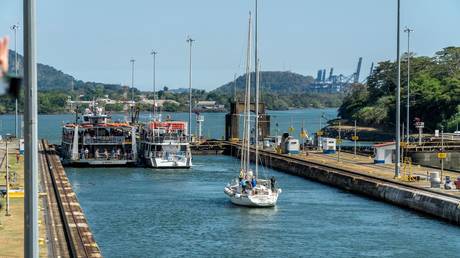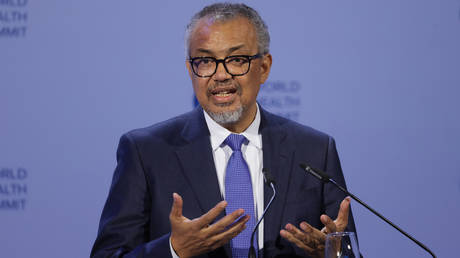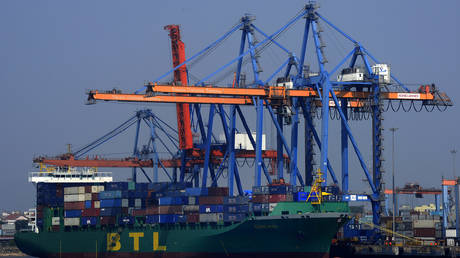New Delhi is transforming its maritime sector with a $10 billion investment over the next 25 years
India is aiming to emerge as one of the world’s leading shipbuilding nations, cementing its position in the global maritime industry, according to Minister of Shipping and Ports Sarbananda Sonowal. The South Asian nation is currently updating its regulation to attract more investment in the sector, he noted.
The upcoming enactment of two key legislations – the Coastal Shipping Bill and the Merchant Shipping Bill – by New Delhi will “revolutionize” India’s maritime sector, Sonowal said in an interview with The Hindu. These laws have the potential to strengthen Indian ship ownership and streamline the ease of doing business in the country, according to the minister. “By fostering growth and competitiveness, these measures aim to position India as a major player in the global maritime industry,” he added.
“Among the more than 176 maritime nations, we want to become the world leader in different verticals like shipbuilding, ship repair and ship recycling. By 2030, we want to become one of the top ten nations, and by 2047, we want to be among the top five,” Sonowal told the outlet.
His ministry’s efforts to develop world-class ports and promote inland water transport, coastal shipping, and a sustainable maritime sector are part of the broader ‘Amrit Kaal’ vision of Prime Minister Narendra Modi’s government for India to become a developed nation by 2047. The total investment in modernizing the maritime sector, according to Sonowal, stands at around $10 billion.
Read more
From Buyer to Supplier: India’s military industrial complex is on the rise
“To become a world leader, we have to develop world-class ecosystem with global standards in all the verticals,” the minister said, noting that the verticals include port management systems, cargo handling, shipbuilding, ship repair, ship recycling, and developing infrastructure for ocean, coastal and rivers cruises.
According to New Delhi, India’s coastal shipping sector holds immense potential given the country’s extensive 7,500-kilometer coastline and strategic location near key global shipping routes. The government sees maritime transportation, especially coastal shipping, as a cost-effective alternative to other modes of transport as it could offer more efficient and sustainable solution for moving goods across the country and beyond.
Speaking about cargo handling capacity, Sonowal noted that India is targeting the 10,000 million metric ton mark by 2047, from its current capacity to handle 1,600 million metric tons. Historically, states have shouldered the responsibility of investing in the transport sector, particularly in port infrastructure, due to the substantial resources required, long gestation periods, and uncertain returns linked to such ventures.
According to industry body FICCI (Federation of Indian Chambers of Commerce & Industry), ports need to significantly boost their capacity, including more berths and better cargo-handling equipment, to keep up with the growing demands of international trade. Similarly, industry watchers believe that the shipping and logistics sector could capture a larger share of sea-borne trade using homegrown vessels.
In December, Sonowal introduced the Coastal Shipping Bill in the Lok Sabha (upper house of the parliament), which aims to promote coastal trade. The legislation will encourage the participation of Indian-flagged vessels owned and operated by Indian citizens for national security and commercial needs.







+ There are no comments
Add yours